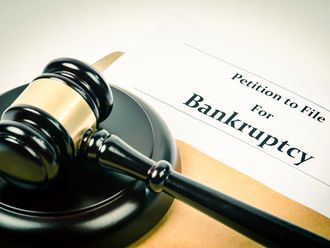The Gulf's aluminium industry is expected to see a large increase over the next decade, which will put it among the top aluminium producers in the world.
The production of aluminium will help diversify the industrial base in GCC countries, where all the elements for this essential product to succeed are present.
The aluminium production in Gulf region is expected to triple to 9 million tons annually in 2020, compared to 2.15 million tones in 2008.
This in turn will boost the region's share of international aluminium to more than 13 per cent in 2020, compared to 6 per cent in 2008 when smelters were established in the region following the success of UAE and Bahrain.
Advantages
Industries in the region, which have relative advantages in the international markets, faced many challenges in the past, especially in the form of protection measures used in the European Union and the strong competition from Eastern Europe, which found solidarity with their Western neighbours.
New investments in the Gulf's aluminium industries is expected to exceed by $20 billion between now and 2020, but doubling the production of aluminium will add new challenges in marketing which will require the coordination of production procedures between the GCC and the cutting of costs.
It is true that many factories in the West will shut down as a result of energy costs, especially natural gas, which makes up 35 per cent of the cost.
However, some countries will continue to produce aluminium because its importance. This metal is required by industries for manufacturing material for military, aviation and aerospace.
And to meet the challenges faced by the production and marketing of this important metal, the GCC has decided to establish the Gulf Aluminium Council (GAC), which is to be located in Dubai.
This council will represent the Gulf's aluminium industry with an aim to create cooperation in logistic operations, human resources development and boosting the competitive abilities of aluminium products in the international markets.
Many positive things will be gained by the establishing of the council especially the joint purchase of the raw material (alumina) which is imported from abroad.
Cartel
Such a cartel will also give GCC countries negotiating power with consumers, especially the European Aluminium Association.
It will also help increase cooperation between GCC nations and help them avoid harmful competition, especially during times of crisis and low demand.
Experience also reveals that such cartels can form a defence line for the interests of producers of commodities. An example is Oil Petroleum Exporting Countries (OPEC) which played a prominent role in defending the interests of oil exporting countries and contributed to stabilising international oil markets since its establishment 50 years ago.
In addition to establishing oil and aluminium cartels, GCC countries can also establish groups for other basic products, such as petrochemicals and natural gas. The growth of these products is rapid and its becoming the basic pillar for Gulf economies seeking to diversify their production base.
However, these cartels may face obstacles in the future. The Gulf Aluminium Council is being called a monopoly cartel which is an attempt to make the Council appear at odds with the World Trade Organisation.
Group coordination and cooperation will help refute such allegations and help bring support for the Gulf aluminium industry.
GCC nations will soon transform into a major player in international aluminium industry, hence, the establishment of the Gulf Aluminium Council came at an appropriate time. And this will help the region achieve one of the most important goals — diversifying their income sources.
Dr Mohammad Al Asoomi is a UAE economic expert












